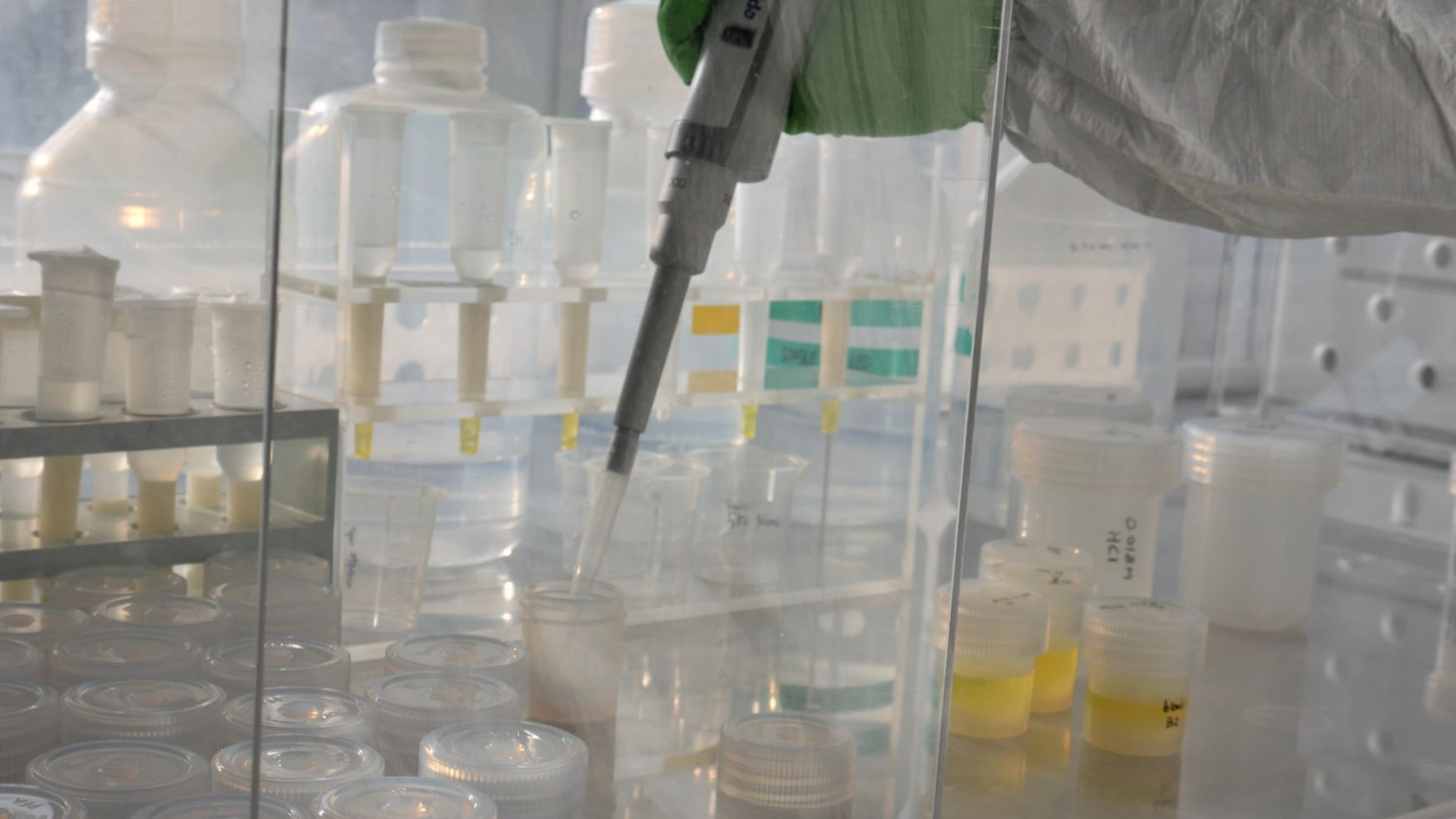
Submitted by Dr C.M. Martin-Jones on Thu, 16/02/2023 - 12:37
Geoscientists use isotopic analysis to answer a range of questions, from the age and origin of a rock to the processes that have shaped it since formation. Across our department, researchers are applying the technique to developments at the forefront of climate, environmental and planetary science.
The forensic detective work starts in the Geochemistry Cleanroom Laboratory, on the South Wing of the Downing Site. Here, samples of all kinds — from rocks, minerals and meteorites to shells, ice cores and river waters — are dissolved down and their chemical fingerprint determined using sensitive mass spectrometers.
Now, after six months of refurbishment work, the ‘Clean Labs’ are open for research again. Heye Freymuth, Laboratory Manager, welcomes the upgrade, which follows months of careful planning, moving equipment and cleaning, “It’s fantastic to see the labs functioning as a professional research facility again.”
To make these careful measurements, samples are prepared and analyzed in a contamination-free, temperature and humidity-controlled environment. The refurbishment ensures that the meticulous analysis can be carried out to the highest standards.
The Clean Labs are used by researchers including Helen Williams, Ed Tipper, Alex Piotrowski, Mike Bickle, Oscar Branson, Sasha Turchyn and a range of students.
Marie-Laure Bagard manages the instruments in the lab, supporting the analysis of elements like iron, lead and chromium at a higher precision than typically achieved with conventional mass spectrometers. The refurbishments are part of a wider upgrade to the facilities in the isotope labs, and next month they will be taking receipt of a new mass spectrometer.
Read about recent research from the Clean Labs facilities:
- Lavas from Galápagos reveal contents of superstructures deep beneath Earth’s surface
- Scientists map deep waters in the Nordic Seas, showing ocean circulation during and after last ice age
- Muddying the waters – weathering might remove less atmospheric carbon dioxide than thought
- Traces of Earth’s early magma ocean identified in Greenland rocks
